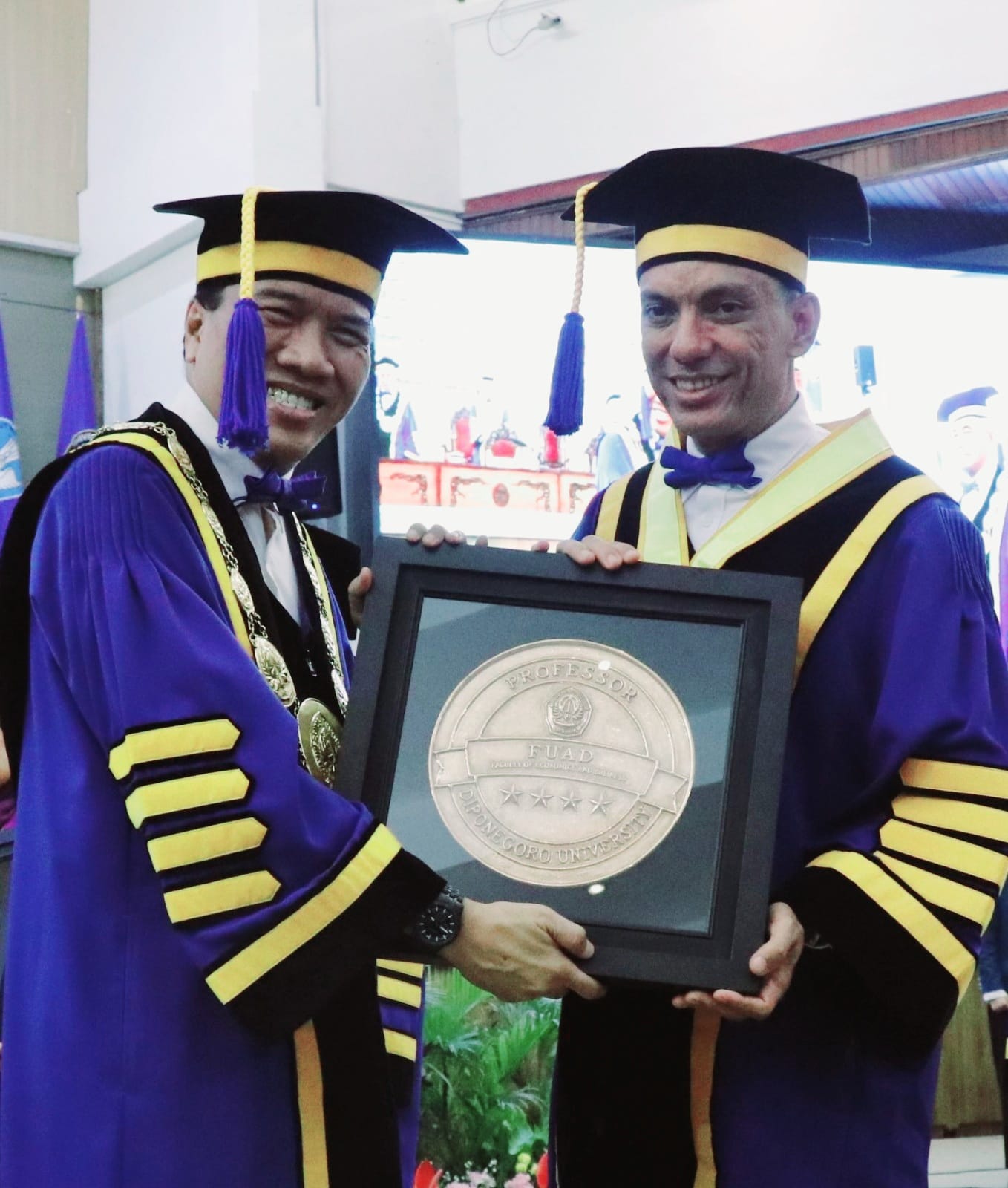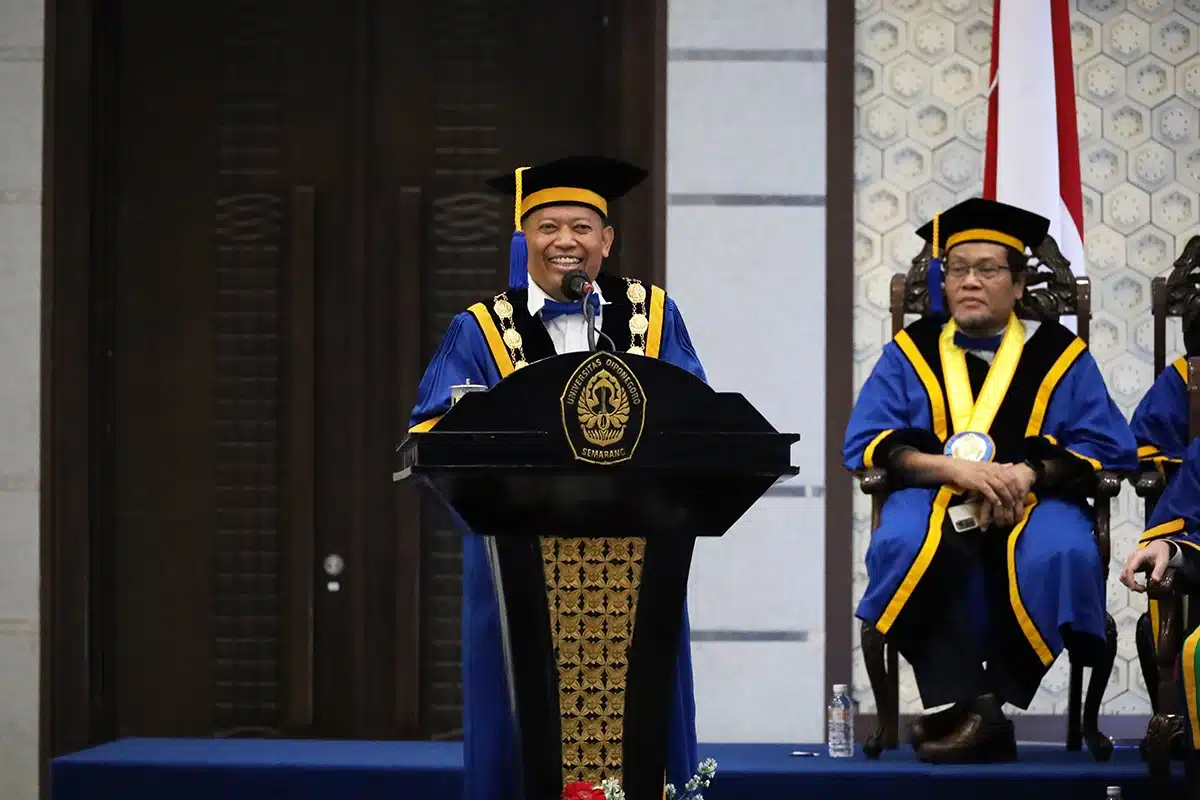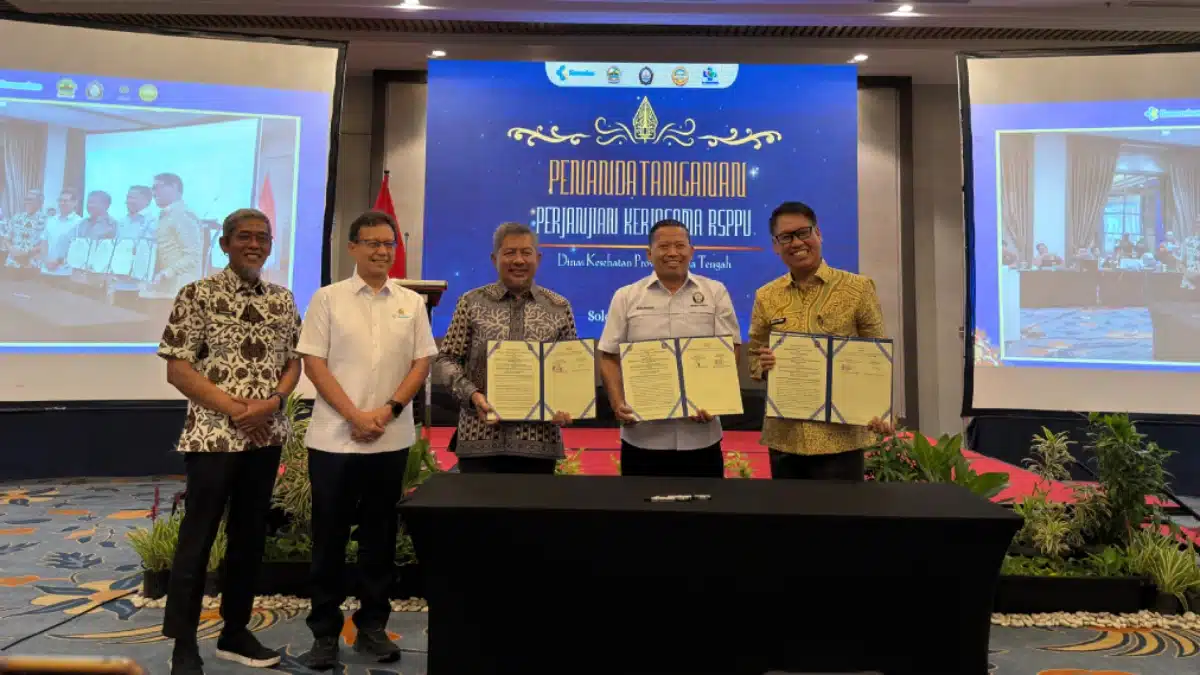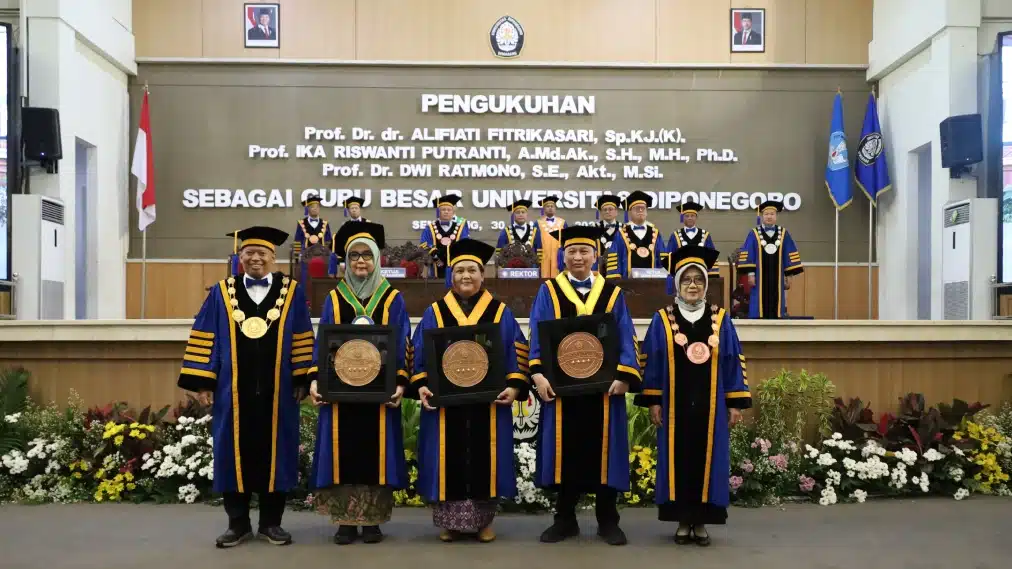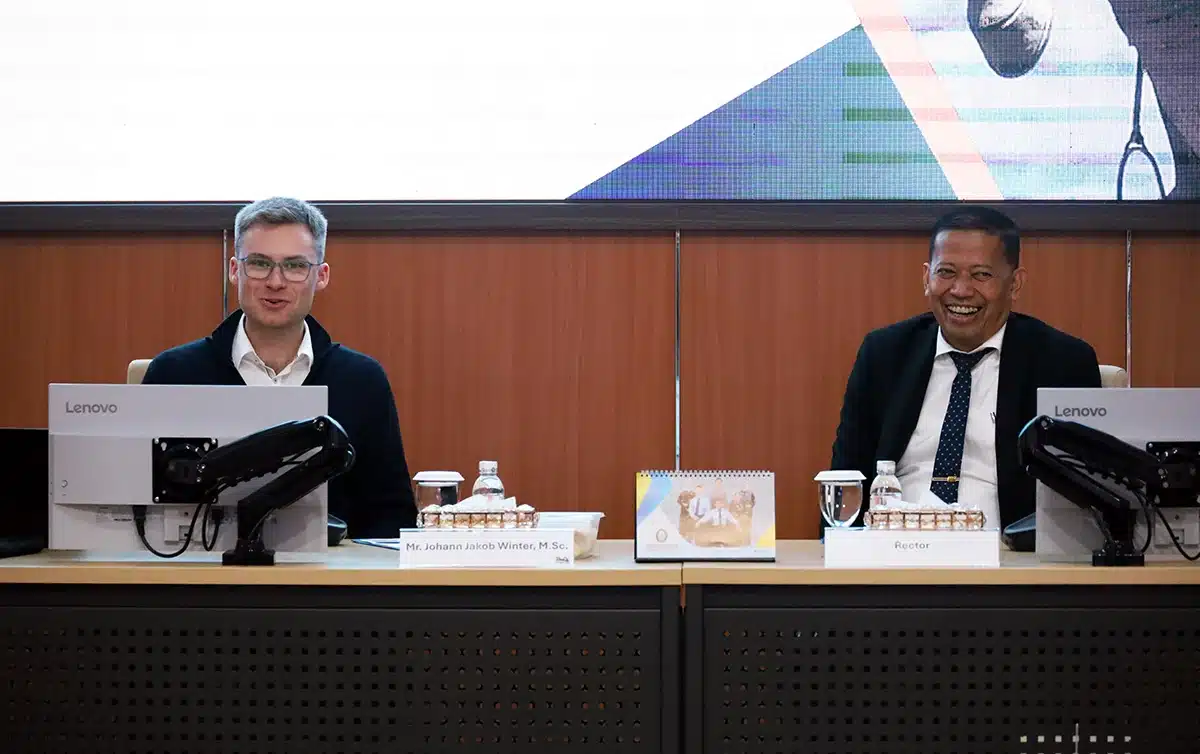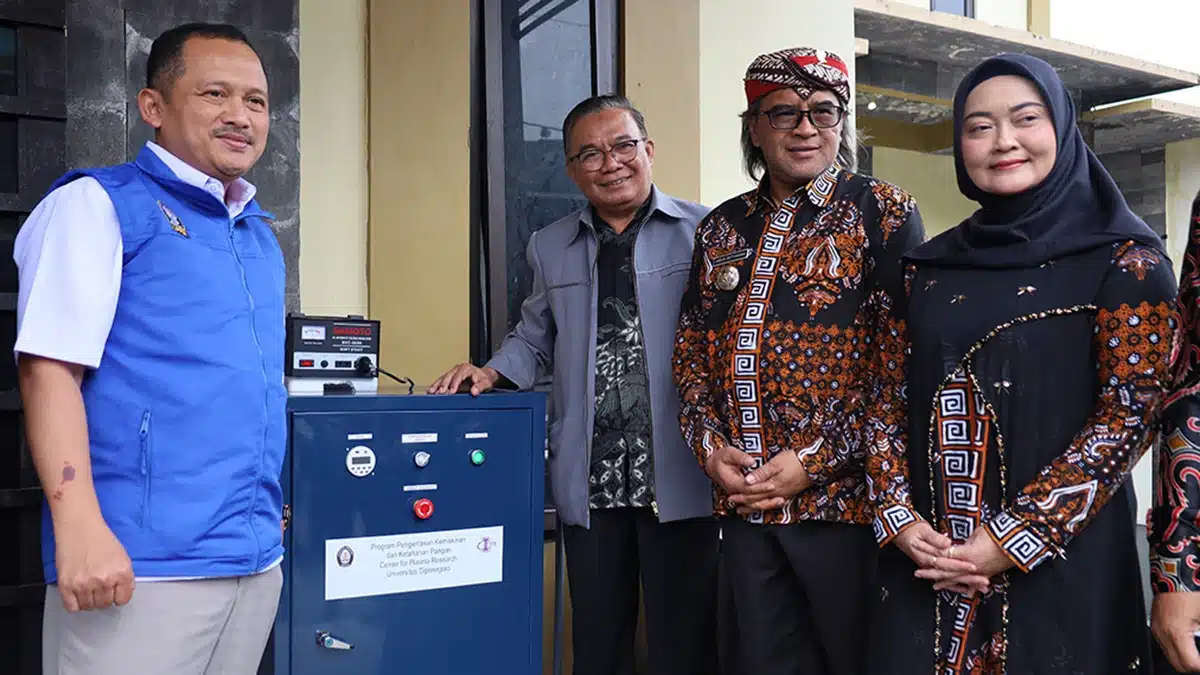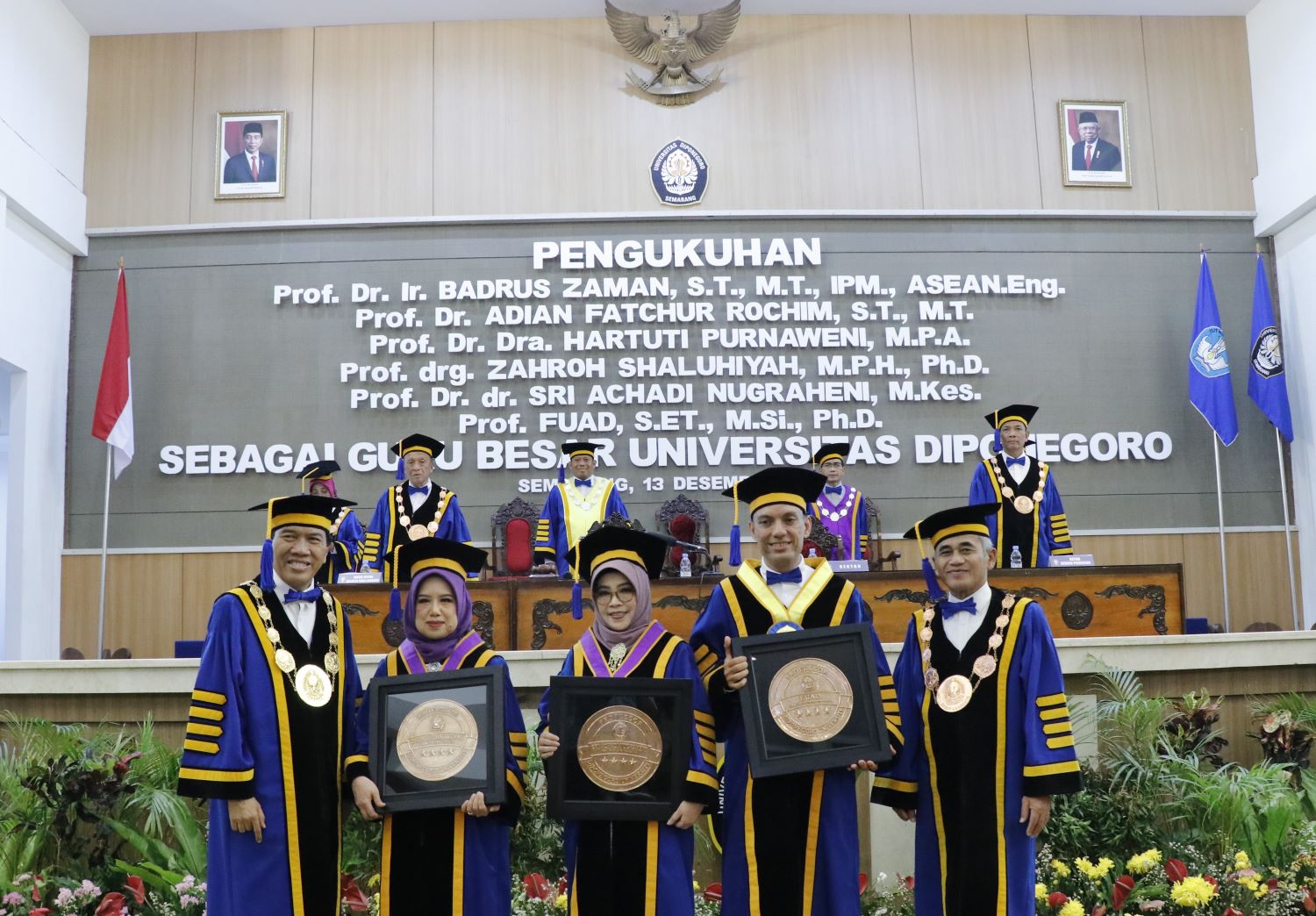Diponegoro University inaugurated Professors at the Faculty of Public Health and the Faculty of Economics and Business on Wednesday, December 13, 2023, at the Prof. Soedarto, S.H. Building, Tembalang at the Inauguration Ceremony as Professor at Diponegoro University. In this inauguration ceremony, three professors were inaugurated, namely Prof. drg. Zahroh Shaluhiyah, M.P.H., Ph.D., as Professor of Health Promotion Science, Public Health Education Studies; Prof. Dr. dr. Sri Achadi Nugraheni, M. Kes., as Professor of Health Nutrition Promotion and Behavior Science; and Prof. Fuad, S.ET., M.Si., Ph.D. as Professor of Financial Accounting.
Prof. drg. Zahroh Shaluhiyah, M.P.H., Ph.D., in her scientific oration entitled “Health Education Strategy to Achieve ‘Three Zeros’ in Preventing Transmission of HIV and AIDS to Mothers and Children,” explained that there were 5,100 new cases of the development of HIV and AIDS in the group of housewives. More than 90% of HIV cases in children are due to infection from the mother. Efforts to prevent HIV transmission to mothers and children (PPIA) are part of controlling HIV and AIDS, as well as Sexually Transmitted Infections (STIs), which are integrated through the Maternal and Child Health Program (KIA). The program is implemented in a comprehensive way, which includes four pillars (4 prongs), namely youth HIV prevention programs, HIV-positive women, HIV-positive pregnant women, and HIV-positive mothers who give birth to HIV-positive babies. Health education strategies are essential to prevent HIV transmission through achieving “Three Zeros,” namely zero stigma, zero transmission, and zero deaths. A plan to empower women and families that involves husbands and stakeholders through advocacy, education and behavior change communication activities that are appropriate to the conditions and needs of the target is the key to success in preventing the transmission of HIV and AIDS. The fair, intensive, and consistent use of social media, media applications, videos, and the latest information technology can make society, especially women, independent.
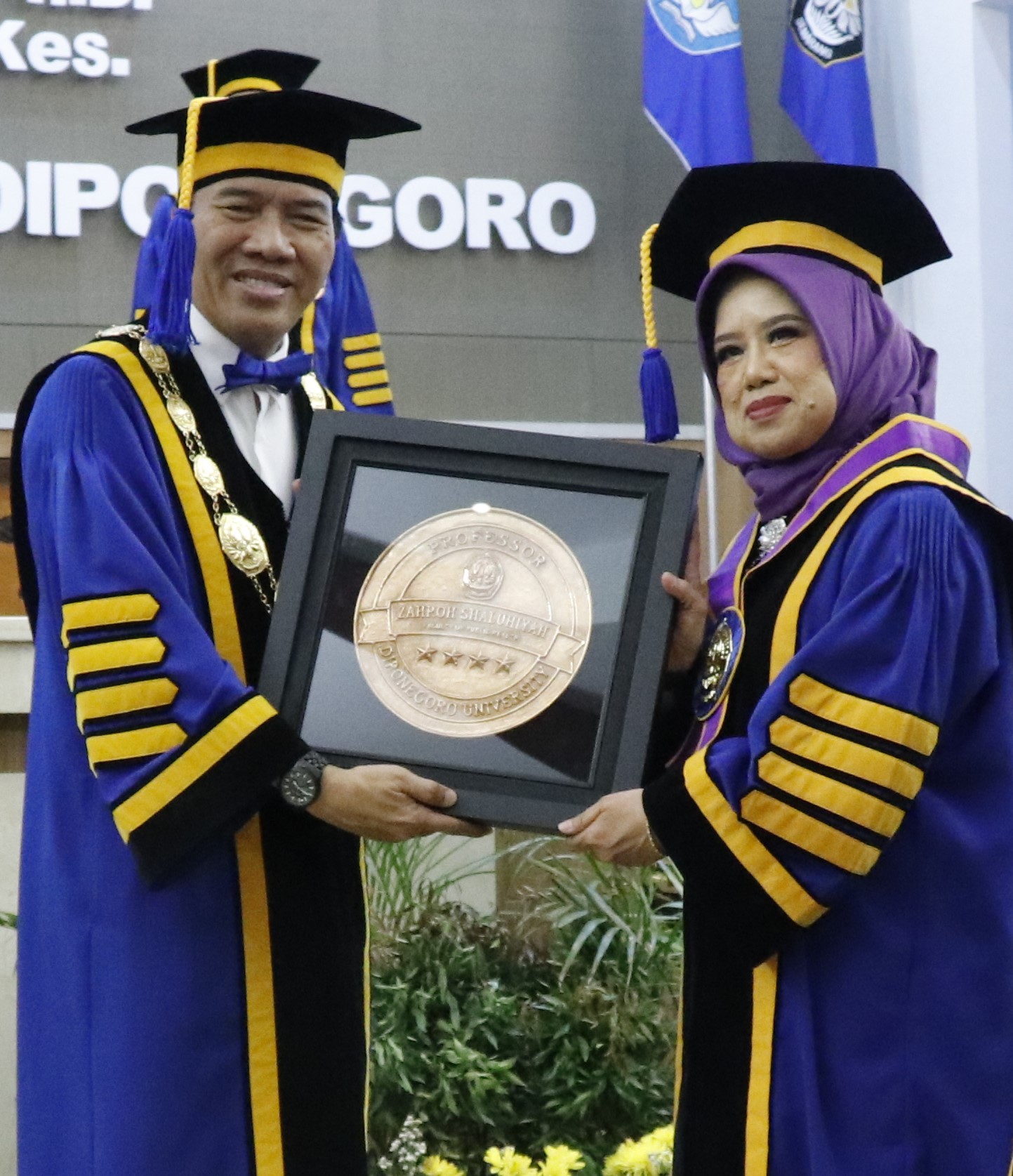
Meanwhile, Prof. Dr. dr. Sri Achadi Nugraheni, M. Kes. in her scientific oration entitled “Development of the Erda Satellite Post (RT-Dasawisma) in Efforts for Early Detection and Prevention of Stunting” explained that stunting has the highest number of nutritional problems in Indonesia from the 2022 SSGI results, still at 21.6% (2024 target is 14%). One method of sensitive nutritional intervention in handling stunting is by providing education or community empowerment regarding early detection and prevention of stunting in the First 1000 Days of Life (HPK) through the downstream of the Erda Satellite Post (RT-Dawis) / Poslit Erda. Poslit Erda is a simple Posyandu (Integrated Healthcare Center) located in the house of a resident of an RT (Rukun Tetangga) or Dawis (Dasa Wisma). Poslit Erda can be one of the downstream activities to bring the function of conventional (existing) Posyandu closer. Poslit has at least four anthropometric tools: (1) Digital Weight Scale, (2) Infantometer, (3) Microtoice, and (4) LILA (Upper Arm Circumference) ribbon. Poslit also needs to put up 5 posters as a means of joint learning, namely (1) How to measure BB (Body Weight), (2) How to measure PB (Body Length) and TB (Body Height), (3) How to measure LILA, (4) KMS (Card to Health) Toddler Boys and (5) KMS (Card to Health) Toddler Girl. The development of Poslit activities is very dependent on innovation and citizen initiative. It is necessary to change the paradigm from ‘Provider Learning Center’ (Health Workers are the center of learning) to ‘Community Learning Center’ (the community is the center of knowledge to be ‘smart’). Poslit can be used as a ONE-STOP SERVICE, namely a place to do many things and activities in one place.
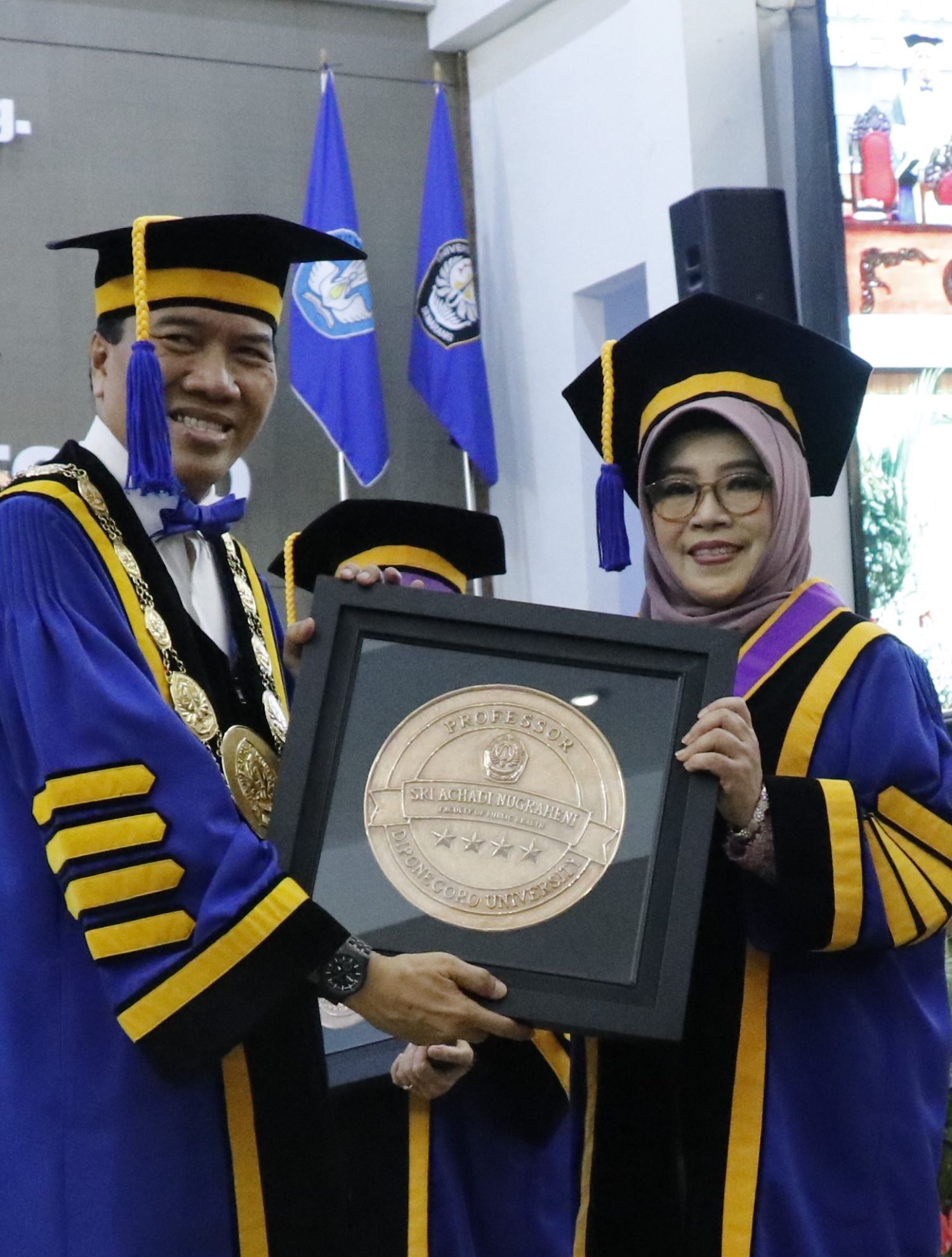
On this occasion, Prof. Fuad, S.ET., M.Si., Ph.D., in his scientific oration entitled “Building a Sustainable Model: Improving the Quality of Accounting Information in the Midst of Change,” explained that the quality of accounting information has become the primary foundation for sustainability and sustainable growth in the world of business and finance. Accounting information is expected to provide relevant and reliable data regarding the financial position and performance of an entity so that it can become the basis for making appropriate decisions. Without good quality accounting information, investor confidence will be eroded, the stock market will become illiquid, and market fairness and efficiency will not even be achieved due to information asymmetry. Several findings indicate a decline in the quality and relevance of accounting information caused by several factors. The factors affecting declining quality include the high complexity of the business, as indicated by increasingly complicated financial transactions, increasingly complex company structures, and diverse financial instruments, making the preparation of accurate and meaningful accounting information more difficult. Besides that, manipulation and unethical accounting practices can produce financial reports that do not reflect the actual situation, which can damage stakeholder trust and reduce the integrity of accounting information. The decline in the quality of accounting information can also be driven by developments in information and communication technology, low harmonization and comparability of financial reports between countries, and poor governance and internal control systems. An integrated approach at various levels is needed to overcome this. Better management, adoption of more sophisticated technology and information systems, increased harmonization and transparency of information, and better collaboration between industry and academia are some of the things that can be done to improve the relevance of accounting information. (Sudanta – Public Relations)
